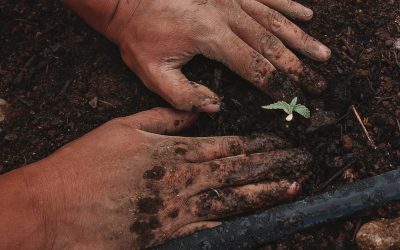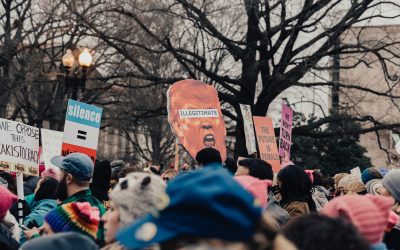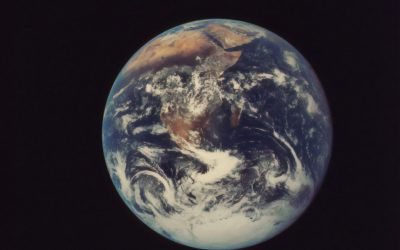Brief #112—Environment
By Shannon Q. Elliot
Biden and Harris walked into a cyclone of environmental ludicrousness as they entered The White House. The previous four years disavowed regulatory science, and neglected to create policies which would support public health and the environment. The policies enacted during the Trump era are now being reevaluated via Executive Order (EO) “Protecting Public Health and the Environment and Restoring Science to Tackle the Climate Crisis.” Under the EO, federal agencies will vet existing environmental policies, vowing to hold polluters accountable, and discuss innovative ways in which to restore and confront environmental crisis.
Environment
I Heard it Through the Pipeline: An Update on Three Controversial Oil Pipeline Projects
Brief #111—Environment
By Jacob Morton
From the beginning of his presidency, Donald Trump made every effort to weaken the country’s environmental protections and accelerate profits for the fossil fuel industry. Trump’s single term was riddled with attempts to roll back, what he considered, cumbersome environmental regulations, some that had existed for decades. He appointed oil and coal lobbyists to the Environmental Protection Agency and Department of Interior, who would champion the expansion of oil pipelines throughout our federal lands. The work to clean up his mess is far from over. Here is an update on three highly controversial oil pipeline projects made possible by the Trump administration.
# 4 Fishing Boat Dispatch
Brief #4—Fishing Boat Dispatch
By Katherine Cart
On trawl vessels targeting demersal fish in the North Pacific there is always a government contracted worker – usually a recent college graduate – whose job it is to monitor fishing practices. The Observer’s duties include sampling netted fish for biodiversity, collecting otoliths, sex, length and maturity data, and among many other oddities, standing on deck while a writhing codend[1] the size of a school bus is hauled up the stern ramp. The codend is dumped into the trawl alley; fish flood, flapping dimly, shocked to be, so suddenly, in alien air.
Fishing Boat Dispatch
Brief #2—Marine Environment
By Katherine Cart
I came to Amaknak Island by plane. The mountains the plane passes between were, in June, very green. The visual sense that the Aleutian Chain gives is of a treeless Hawaii – its geology is similar; the landscape is very young, and active volcanoes grow the islands sporadically. Extending like a hooked arm, the Aleutians delineate the southern edge of the Bering Sea. Amaknak rises from the North Pacific, 800 miles south of Anchorage. Around the smidge of land that is the Aleutian Chain, there is very little but sea.
Fishing Boat Dispatch
Brief #3—Marine Environment
By Katherine Cart
Walk to Maine’s midcoast and look southwest. Unless you’ve gotten yourself in a spruce thicket, you will see Atlantic water filling the hole that is the Gulf of Maine. Likely, you will hear the sea, smell it, be standing in its sandy refuse. It will very possibly feel colder – or at least damper – here than a mile inland. Chilled oceanic air is sucked landwards, dumping sludgy precipitation, heaping fog, painting rime on roof, pine, window pane, dune hollow. A weathered-in gulf can be, to the casual observer, somewhat benign, rather like watching on a TV screen an avalanche shift some unpopulated mountain. Storms are spectacular to witness from the beaches, nasty to endure offshore. Inland Maine is a stronghold well protected from tidal degradation by granitic coastline, carved out over several millennia by the heaving of the Laurentide ice sheet over Appalachian stone. If you are standing at the coast and look down, between your feet you will see the long lateral scratches the Laurentide left, sloughing southwest into the sea. One cannot help but to think of fingernails, and a general determination to cling on.
The House Passes a Bill to Help Small Farmers
Brief #2—Agriculture
By Katherine Cart
Before the industrial revolution reworked the entirety of agricultural processes in America, poultry, eggs and meat were not cheap. The average dozen, in 1913, cost today’s equivalent of $9.25. Chicken meat was served on Sundays, or for holidays, and could not be bought boneless, ground, breaded, molded into consumer-pleasing shapes. Small farms produced small quantities of meat and poultry product and lack of mass shipping transit kept businesses local. Now, however, only three mega-corporations control roughly 90% of the poultry market and four control 85% of the beef market. Legal red tape impedes the fair competition of smaller farms. Conversations concerning antitrust reforms are, once again, gaining momentum and new voices. The DIRECT (Direct Interstate Exemption for Certain Transactions) Act, seeks to amend selling restrictions and could be a boon for small meat and poultry producers. Currently, meat and poultry grown by many small processors are inspected and approved for sale within only the state of inspection. The act would lift bans on interstate sales by processors, butchers and other retailers of locally-produced meat and poultry, allowing for the direct-to-consumer sale of normal retail quantities across state lines. Congressman Cuellar says, “the bipartisan legislation will allow meat inspected by the State to be sold online and across state lines, opening up new markets for meat producers and processors.”
Fishing Boat Dispatch # 2
U.S. RESIST Blog
By Katherine Cart
I came to Amaknak Island by plane. The mountains the plane passes between were, in June, very green. The visual sense that the Aleutian Chain gives is of a treeless Hawaii – its geology is similar; the landscape is very young, and active volcanoes grow the islands sporadically. Extending like a hooked arm, the Aleutians delineate the southern edge of the Bering Sea. Amaknak rises from the North Pacific, 800 miles south of Anchorage. Around the smidge of land that is the Aleutian Chain, there is very little but sea. Amaknak’s Iliuliuk Bay, where 300 foot vessels dock, offload fish, and fuel, drops dramatically to twenty fathoms. The basalt and andesite flows and pyroclastic rocks that form the cliffs of Mounts Ballyhoo and Split Top, and through which obdurate roads have been blasted, rise nearly two thousand feet from the bay edge. Thin soil, reddish, capped by tall grasses and shrub like a fur, holds tremulous purchase on the volcanic substrate. There is a wildness and fragility to Amaknak. With nearly three thousand residents, Amaknak is the most populous of Aleutian islands, and where Dutch Harbor provides anchorage to the North Pacific fishing and shipping fleets. Billions of dollars pass through each year.
Leading Environmental Organizations Went Public with a Letter That Supported the Impeachment of President Trump
Brief #110—Environment
By Shannon Q Elliot
Leaders of America’s most prominent environmental organizations penned a letter to the US House of Representatives in support of House Resolution 24; a second impeachment trial of Donald Trump. The letter was authored by The Sierra Club, Defenders of Wildlife, Earthjustice, Greenpeace US, and the Natural Resources Defense Council who concluded the letter gently reminding our leaders that the “health of our democracy and environment are inextricably linked”
The Importance of Preserving the Biodiversity of Our Planet
Brief #109—Environment
By Jacob Morton
The biodiversity of our planet is declining at an accelerated rate. Populations of plant and animal species around the world are dwindling to the point of near extinction, more rapidly than at any other time in our planet’s history. Sir Partha Dasgupta, an economist at Cambridge University, says this rampant and unheeded degradation of our planet “could have catastrophic consequences for our economies and wellbeing,” pointing to Covid-19 as “just the tip of the iceberg.” Earlier this month, Dasgupta and the UK Treasury released an independent report on the economics of biodiversity. The main takeaway? We are draining the bank of our most valuable asset, natural capital. And the consequences are not going to be pretty.
Dasgupta explains it like this, “Just as diversity within a portfolio of financial assets reduces risk and uncertainty, diversity within a portfolio of natural assets increases nature’s resilience in withstanding shocks.” The widespread impacts of climate change and a coronavirus run rampant across the globe are just a couple examples of nature’s loss of resilience. As the report points out in its opening remarks, “Our economies, livelihoods and wellbeing all depend on our most precious asset: nature. We are part of nature, not separate from it.”
General Motors and Wall Street can’t wait to plug into the new economy
Brief #108—Environment
By Todd J Broadman
Soon after President Biden’s election victory, General Motors Corporation (GM) publicly stated their vision: to manufacture vehicles that feature zero carbon emissions. That vision is the leading feature of their “triple zero,” which also includes zero congestion and zero crashes (through advanced safety technologies and self-driving vehicles). Over the next 15 years, GM will completely phase out the production of petroleum powered vehicles and will solely manufacture electric vehicles (EV). There are to be 30 such EV models available by 2025.
President Biden’s Executive Orders Greatly Strengthen US Commitment to Fight Climate Change
Brief #107—Environment
By Jacob Morton
On Wednesday, January 27, President Joe Biden signed a flurry of executive actions to address the climate crisis by reviving environmental protections dismantled by the previous administration and promoting the creation of new ‘green’ jobs. The orders revive many Obama-era protections and regulations, including a rejection of the Keystone XL Pipeline and the protection of sacred indigenous sites in Utah. Biden’s executive actions go even further still, mandating that climate change be considered in all major decisions of the Federal government, and re-establishing a culture of scientific integrity and evidence-based decision making across all Federal agencies. The President’s executive orders also call for the Federal government to play a larger role in ensuring economic success for communities and individuals affected by an energy industry shift from fossil fuels to renewables.
Fixation on Fixtures; The Showerhead Rollbacks
Brief #106—Environment
By Shannon Q Elliot
President Trump has rolled back the Department of Energy’s (DOE) standards for consumer appliances.












